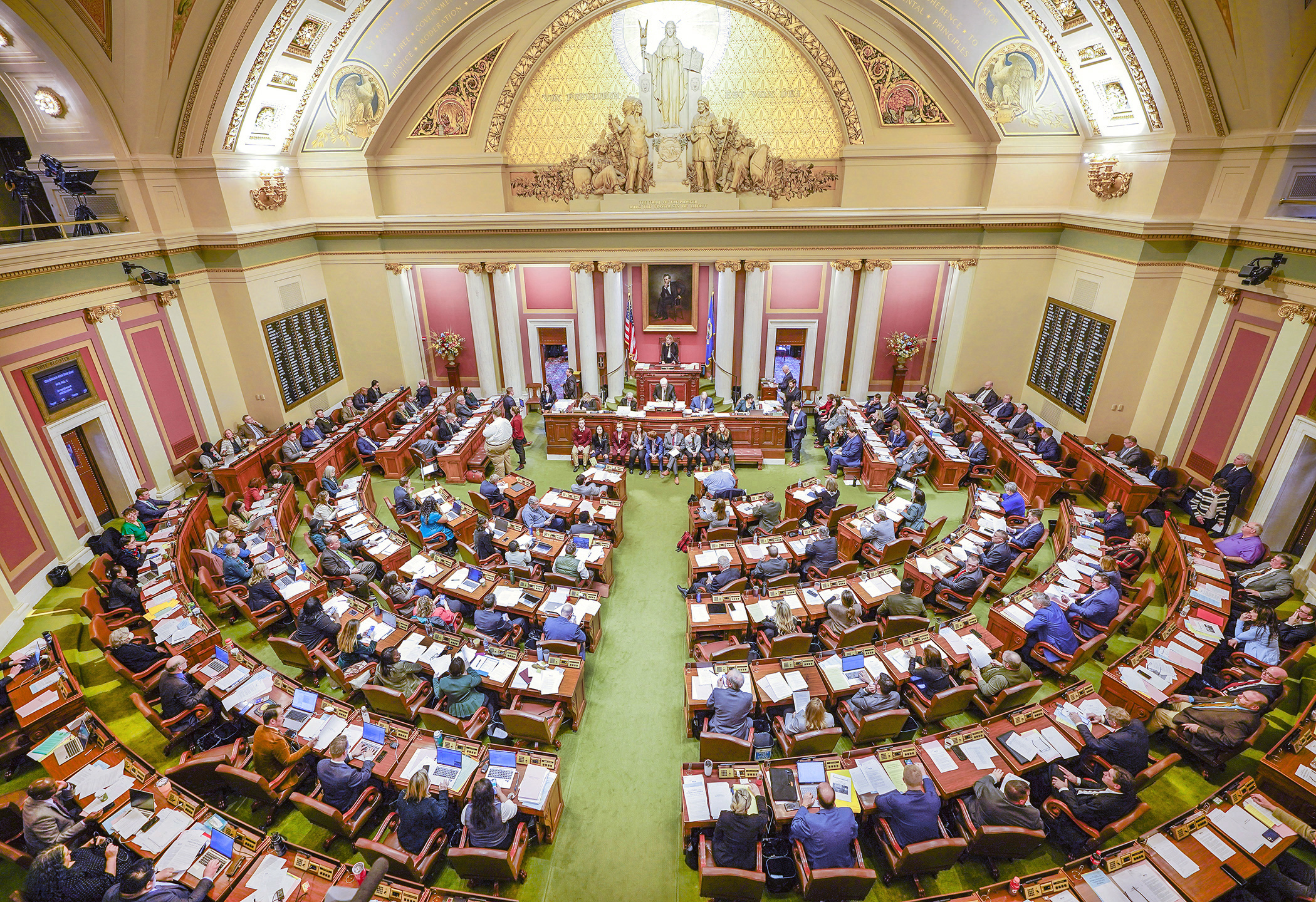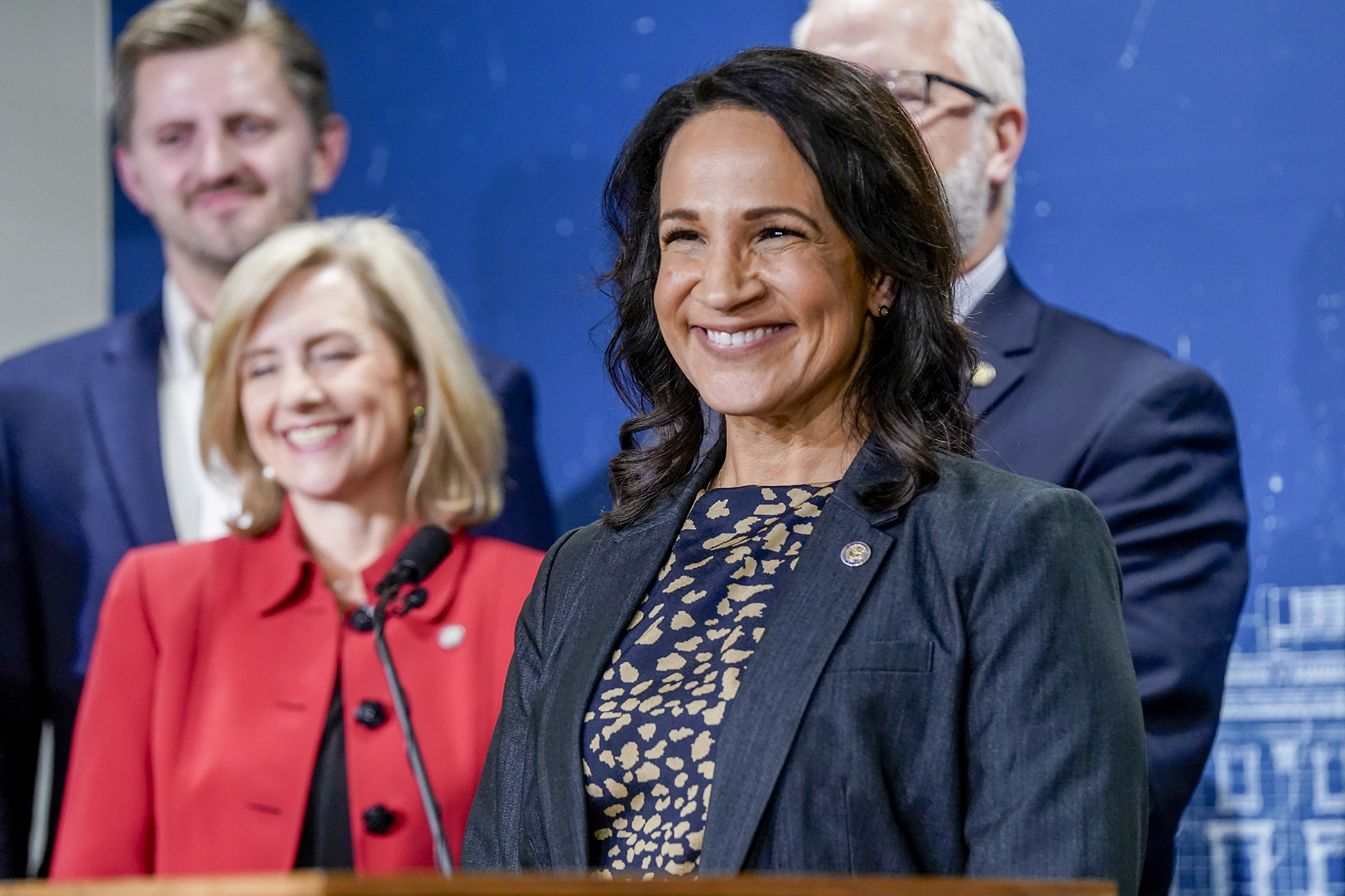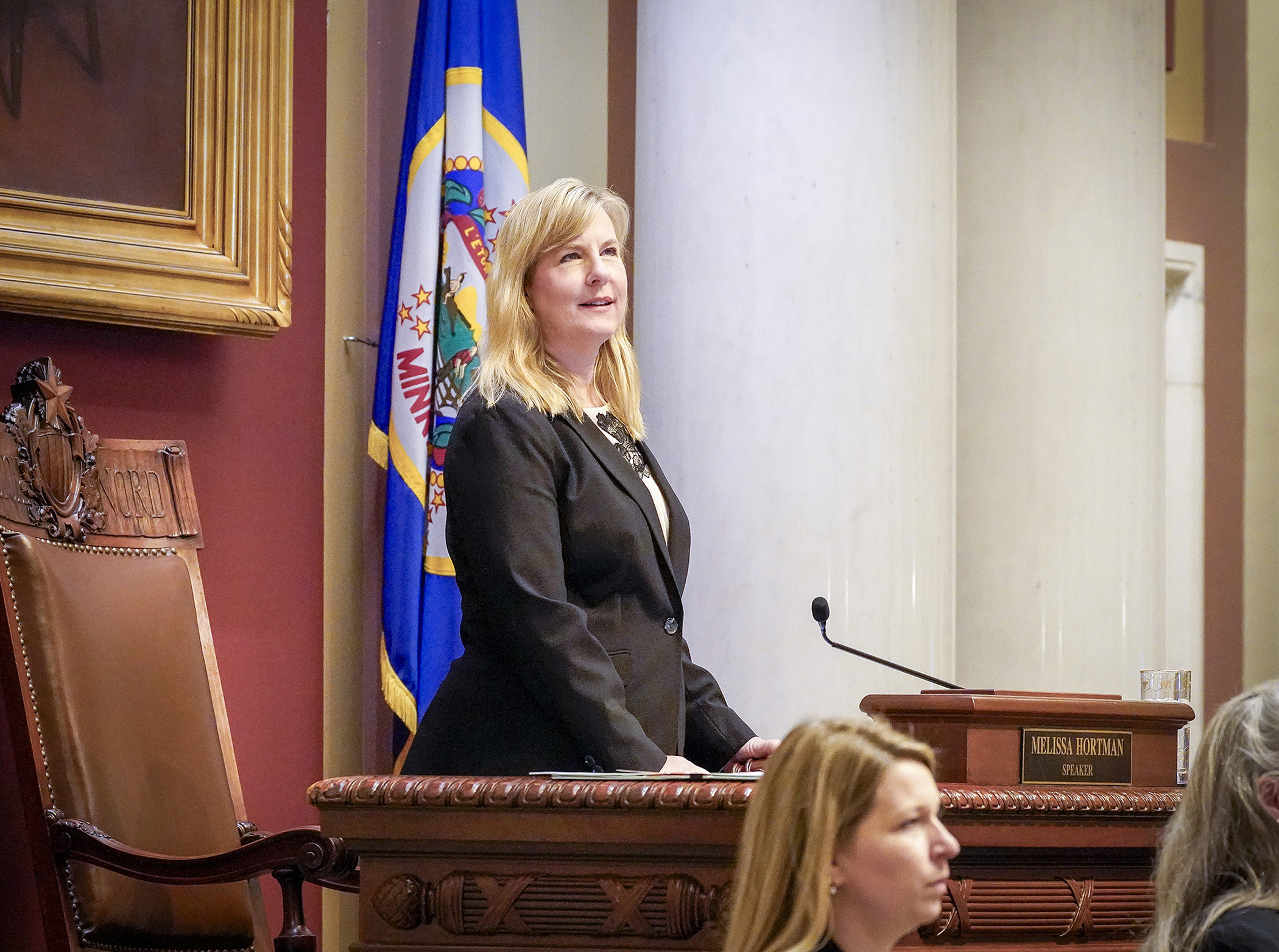House passes commerce policy bill packed with proposed consumer protections

A bill proposing to beef up a host of consumer protection laws took a big step forward late Monday.
The House passed a commerce policy bill containing provisions ranging from enhancing protections against coerced debt to giving social media users more power over the content the platforms feed them.
Rep. Zack Stephenson (DFL-Coon Rapids), who sponsors HF4077/SF4097* with Sen. Matt Klein (DFL-Mendota Heights), touted the “groundbreaking approach” to social media protections, calling it a “bipartisan effort to put some real guardrails about social media.”
He also spoke on the “really great provisions … making sure that our laws around debt are fair and treat consumers with respect.”
Amended to include the House language, the bill was passed 70-61 and sent back to the Senate, which passed its version 53-14 on April 4. A conference committee is expected to iron out the differences.
[MORE: Bills included in the commerce policy bill]
Consumer protections
Consumer protection proposals make up much of the House Commerce Finance and Policy Committee policy bill, including requiring a social media platform to allow users to indicate what content they do or do not want and requiring a platform’s algorithm to abide by those preferences.
The “Prohibiting Social Media Manipulation Act” would require that new users on a social media platform automatically have their privacy settings set to the strictest level by default. This would focus on keeping user-generated content within a user’s chosen social network and reduce exposure to unwelcome content from unknown users.
The attorney general would have the authority to bring a civil enforcement action against violators and sue to recover relief.
Retailers selling aerosol dusters containing difluoroethane would be required to keep them behind the counter, limit sales to purchasers who prove they are at least 21 years old, and sell no more than three cans in a single transaction.
Insurance and finance, other regulatory provisions
Notable insurance and financial provisions in the bill would expand the scope of laws prohibiting coerced debt, plus require financial institutions to develop, implement, and maintain an information security program to protect customer data.
A provision that would prohibit a health plan from excluding coverage for medically necessary gender-affirming care was successfully amended by Rep. Leigh Finke (DFL-St. Paul) to permit religious exemptions.
Rep. Anne Neu Brindley (R-North Branch) unsuccessfully offered an amendment that would only mandate that insurance coverage for adults seeking gender-affirming health care.
“Gender-affirming care is health care,” said Finke. “It is not up to us to determine at what age someone should have access to their health care.”
Other notable amendments
An amendment successfully offered by Stephenson deleted three sections.
Deleted was a provision prohibiting deceptive trade practices and another that would protect individual ticket buyers by putting stricter controls on online bulk ticket sellers. Those sections came from HF3438 and HF1989 that were passed April 11 by the House and sent to the Senate.
The third deleted section would have allowed local governments to negotiate franchise fee agreements for broadband providers’ use of the public right-of-way to lay aboveground or underground transmission lines.
Stephenson said that language from HF4182 needs more stakeholder input.
Republicans had opposed that provision when the bill was heard in the commerce committee, saying broadband service providers would pass along the fees they are charged to consumers, which amounts to a hidden tax levied without voter input.
Neu Brindley unsuccessfully offered two more amendments. One would have eliminated the 33% maximum annual finance rate on so-called “payday” loans, the other would have deleted a provision to allow municipalities to acquire a telephone exchange without first getting voters’ approval on the measure.
Related Articles
Search Session Daily
Advanced Search OptionsPriority Dailies
Demuth named Republican speaker-designate
By HPIS Staff Current House Minority Leader Lisa Demuth (R-Cold Spring) is officially the Republican speaker-designate charged with working with DFL counterparts to get the House organized fo...
Current House Minority Leader Lisa Demuth (R-Cold Spring) is officially the Republican speaker-designate charged with working with DFL counterparts to get the House organized fo...
House DFL selects Hortman as speaker-designate
By Jonathan Mohr House DFLers have again chosen current House Speaker Melissa Hortman (DFL-Brooklyn Park) to lead their caucus amid uncertainty in the aftermath of Tuesday’s election that may ha...
House DFLers have again chosen current House Speaker Melissa Hortman (DFL-Brooklyn Park) to lead their caucus amid uncertainty in the aftermath of Tuesday’s election that may ha...